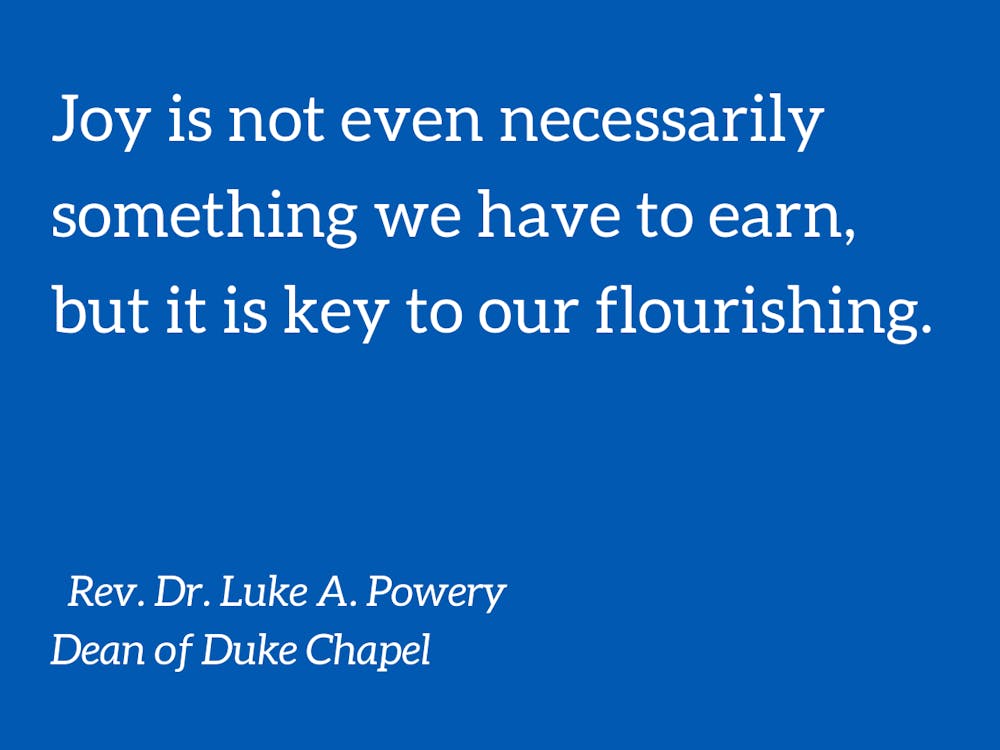Joy in a pandemic? It may seem delusional, dishonest or even crazy to talk about experiencing joy in the midst of our current world situation, but it is a real question, interrogating joy’s possibility and presence at such a time as this.
The joy, of which I write, doesn’t deny sorrow, failure or doubt. It’s possible to have joy even without a perfect, unblemished life. Light can rise out of darkness. Joy can occur amid sorrow. To borrow the words of theologian Frederick Buechner, “something [can] Easter up out of the dimness.”
There are many examples in African American musical traditions of this kind of “sorrowful joy,” as the recently deceased Princeton professor Al Raboteau calls it in his memoir.
The Spiritual “Nobody Knows the Trouble I See” says, “Nobody knows the trouble I see,” and then moves to “Glory, hallelujah!” Former Wesley Seminary professor William McClain says this about African American singing:
“In our melancholy, our songs are not always mournful songs. Most often, they are joyous, lifting the spirit above despair. Yet, our sad songs sometimes come in the midst of our joy, in moments of jubilation and celebration…. At the moment of our deepest despair we sing, ‘sometimes I feel like a motherless child a long way from home.’ Then in the midst of our sadness, we sing with assurance, ‘I’m so glad that trouble don’t last always.’”
This sorrowful joy is also reflected in the novel "Praisesong for the Widow." In it, author Paule Marshall depicts the mix of festivity with solemnity in a cultural celebration known as the Big Drum. When the drum is beaten, she writes:
“… the single, dark, plangent note this produced, like that from the deep bowing of a cello, sounded like the distillation of a thousand sorrow songs….. Its source had to be the heart, the bruised still-bleeding inner-most chamber of the collective heart. For a fraction of a second the note hung in the yard, knifing through the revelry to speak to everyone there. To remind them of the true and solemn business of the fete.”
Marshall is describing this mixed texture of sorrow and joy: a solemn fete, a somber party, a sad joyfulness.
Joy can be such an elusive quality but the Yale University research project “Theology of Joy and the Good Life” sought to describe it. Contributors to the project articulated joy in different ways: as a feeling that responds to something else; happiness plus gratitude; a sense of contentment with one’s choices and paths taken or not; an act of resistance against despair and its forces; a temporary experience linked to someone beyond ourselves; an inner strength; an immediate response to creation, redemption and salvation; a deep seated sense of well-being with oneself and life; something rooted in faith, hope and love; a work that can become a state that can become a way of life.
One point of agreement was that joy is fundamental to human existence and well-being.
The head of the study, Professor Miroslav Volf, argued that to define joy as a “feeling of great pleasure and happiness” is like describing champagne as a bubbly liquid, but forgetting all about its golden color, whiffs of ripe pear and fresh baked bread in its aroma or traces of apple, vanilla, yeast and nuts in its flavor, and, of course, its capacity to intoxicate. Volf defines joy as “emotional attunement between the self and the world—usually a small portion of it—experienced as blessing.”
Joy can be exuberant or a calm delight but it’s the experience of something as a blessing that initiates it.
Observing our society today, we seem to be known more for divisions splattered all over the news, for bickering, meanness and being judgmental, than for love and joy. A good question to ask ourselves comes from legendary Harvard professor and minister Peter Gomes: not “Do you believe in life after death?” but “Do you believe in life before death? Do you have any life in you now?”
In other words, Gomes is asking, do you have any joy in you now? If not, why not? As we have heard here, the answer does not have to depend on vanquishing grief and sadness. Joy is not even necessarily something we have to earn, but it is key to our flourishing. If we ever needed the blessing of joy before, we sure do need it now.
The Rev. Dr. Luke A. Powery is the Dean of Duke Chapel. His column runs on alternate Mondays.
Get The Chronicle straight to your inbox
Signup for our weekly newsletter. Cancel at any time.

